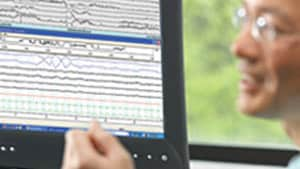
An interview with David White, M.D., Chief Scientific Officer, Philips Respironics: New research to make big impact for sleep physicians and patients. According to David White, we are at the beginning of new research and revived public interest in sleep medicine. In the Q&A below, Dr. White discusses current research activities. He shares new thinking will highlight quality sleep benefits and new technology will give patients and consumers more control over their sleep habits. In turn, sleep physicians will begin seeing a more informed patient and be able to offer specific solutions.
Q: What interests you about sleep medicine? Dr. David White: I entered the sleep medicine field through pulmonary disease research. I was fascinated by the mechanisms that control breathing and their ability to keep oxygen and carbon dioxide levels stable with the least amount of respiratory work. In sleep diseases, these mechanisms don’t work as well during sleep as they do during wakefulness. This is what first sparked my interest in sleep research and I’ve now dedicated more than 35 years to this field of study. Q: What new areas of sleep medicine are being explored? Dr. David White: For Philips, research on understanding and harnessing circadian biology and studies focusing on improving the quality of deep sleep are exciting new areas of focus this year. Circadian rhythms and sleep are tightly linked. Circadian biology involves many “body clocks”, with one of the main outputs of the circadian system being the sleep-wake cycle. Although the primary oscillator (clock) is located in the brain (hypothalamus) many organ systems have their own clocks which influence circadian events in that system; examples include the liver and the heart. Currently, we (Philips) are working in a variety of areas related to circadian biology. An example would include investigators in England that administer chemotherapy for cancer based on cell cycle circadian biology. And they are seeing remarkable results. Despite the fact that circadian rhythms have the potential to impact virtually all biologic processes and thereby all medical fields, Philips is one of few companies interested in circadian biology. Circadian rhythms certainly play a large role in a number of sleep disorders which will be an initial focus at Philips. Additionally, scientists at Philips are investigating how to improve certain stages of sleep, particularly what we call slow wave sleep, as slow waves are indicative of an important neurological process involving brain cell connections (synapses). We believe that by increasing the quantity of slow wave sleep, people can improve the quality of their sleep and cognitive function while awake. Q: Why has it taken so long for sleep medicine to become top of mind? Dr. David White: Sleep medicine is a multi-disciplinary specialty. The field grew rapidly as sleep apnea emerged as an important health concern in the late 70s. Sleep studies (polysomnography) to diagnose sleep apnea became the driving force in the field and, in my opinion, too much attention was devoted to in-lab polysomnography, limiting the growth of sleep medicine in other important areas. Now, that is beginning to change and we are starting to understand and address other complex sleep disorders. Q: Until now, wearable health trackers have been popular for tracking fitness and sometimes sleep patterns. How will new sleep research affect the consumer wearable market? Dr. David White: Most devices now come with functions that monitor sleep, but their accuracy is questionable and most physicians will caution their patients on that notion. Nevertheless that function is popular. Generally, when consumers purchase wearables, they are interested in 1) monitoring exercise, and 2) monitoring sleep. However, these devices generally do not often therapeutic solutions to address sleep problems. Beyond wearables, consumers have started to install non-contact devices in their homes that can track sleep. For example, the Withings system links multiple devices together, including a wearable fitness tracker and sleep sensor placed under the mattress. Bedside and in-bed devices can also measure/record heart rate, humidity, noise, etc. thereby providing even more information about a user’s daily health habits.1 Monitors, combined with an in-depth questionnaire, can provide extensive information about a patient’s sleep health. With all of these options available, people have started paying more attention to their sleep health. However, with few devices offering holistic feedback or viable solutions for sleep problems, wearables or non-contact monitors aren’t providing as much value as they might. Philips hopes to change this with sophisticated use of the information derived from these devices to address sleep problems and disorders. Q: Do you see this being an entry point for new sleep specialists? Dr. David White: Possibly, as the devices may help identify a lot of people with sleep problems who aren’t typically identified. This may spark the need for more sleep doctors, therapies and sleep devices. Medical students are starting to gain interest, but it will take time as the complexity of sleep medicine increases. Additionally, as patients become identified, more patients will follow. Q: What are the challenges for the next big industry leap? Dr. David White: Collaboration between industry and academia is not a difficult concept and can produce creative ideas. Physicians and industry professionals seem to understand the challenge between academia and industry is primarily due to potential conflict of interest. However, if both sides recognize this and work to minimize it, progress can be made in basic science and its clinical applications in the sleep field. As we move forward in the study of sleep medicine, we must remain open to collaboration for mutual gain with the patient always front and center.
References: 1. Piwek, Lukasz, David A. Ellis, Sally Andrews, and Adam Joinson. "The Rise of Consumer Health Wearables: Promises and Barriers." PLOS Medicine. Public Library of Science, 2 Feb. 2016. Web. 24 Mar. 2017.
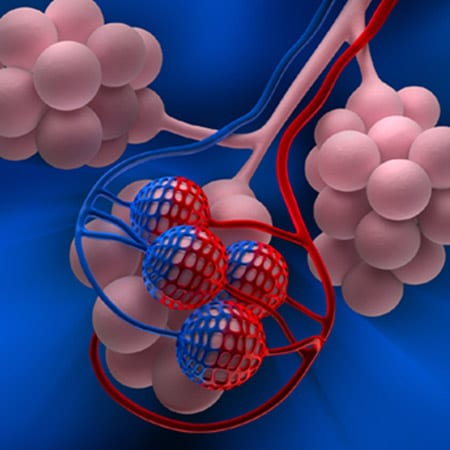
A new online continuing medical education activity is now available on the CHESTTM Journal website in the CME Resource Center: *Presentations available in German, French and English COPD Advanced Patient Management: Post-acute care
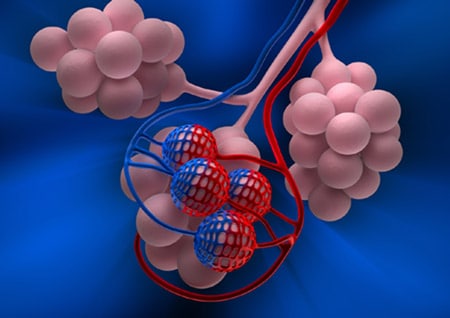
Dr. Phyllis Zee speaks about slow wave enhancement at the Sleep and Breathing Conference
Philips Respironics hosted a symposium on the topic of slow wave sleep at the fourth international Sleep and Breathing conference organized by the European Respiratory Society (ERS) and the European Sleep Research Society (ESRS) in Marseille, France. Dr. Phyllis Zee, Chief of Sleep Medicine in the Department of Neurology at Northwestern Memorial Hospital, discussed novel findings in how prolonging slow wave sleep is being accomplished. She noted that acoustic stimulation of slow waves has the potential to be a practical and safe approach to enhance sleep-related function in patients who are aging or have sleep disorders. Research shows that it seems to matter which phase of the slow wave is stimulated, but more studies are needed in patients with insomnia, neurological and psychiatric disorders. Philips also participated in the Skills Workshop hosted by the Sleep and Breathing committee providing product and clinical assistance on treatment modes, interfaces, humidification and telemonitoring.
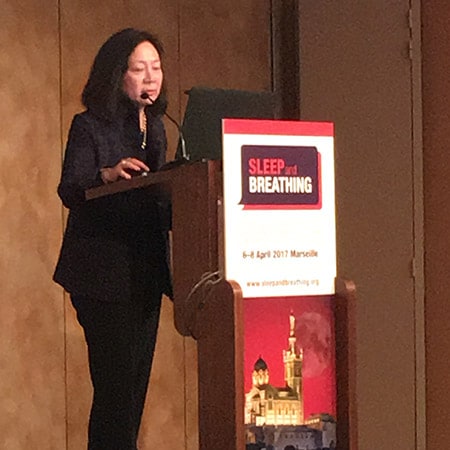
In celebration of World Sleep Day, Royal Philips released its report, "Unfiltered Sleep: A Global Prioritization Puzzle," which showcases the results of an international survey conducted online in February by Harris Poll on behalf of Philips. The survey looks at how 6,461 adults across five countries (United States, the Netherlands, Germany, France and Japan) perceive, prioritize and prepare for sleep, as well as how sleep impacts daily responsibilities, from work to relationships and hobbies. The survey found that while there is little debate on the value of sleep, individuals face daily demands which compete for time, often leaving sleep diminished in the list of daily priorities. Through these findings, Philips, a global leader in sleep and respiratory care, aims to start a conversation about an important yet often forgotten pillar of overall health and wellbeing: sleep health. The infographic below showcases findings from this study.
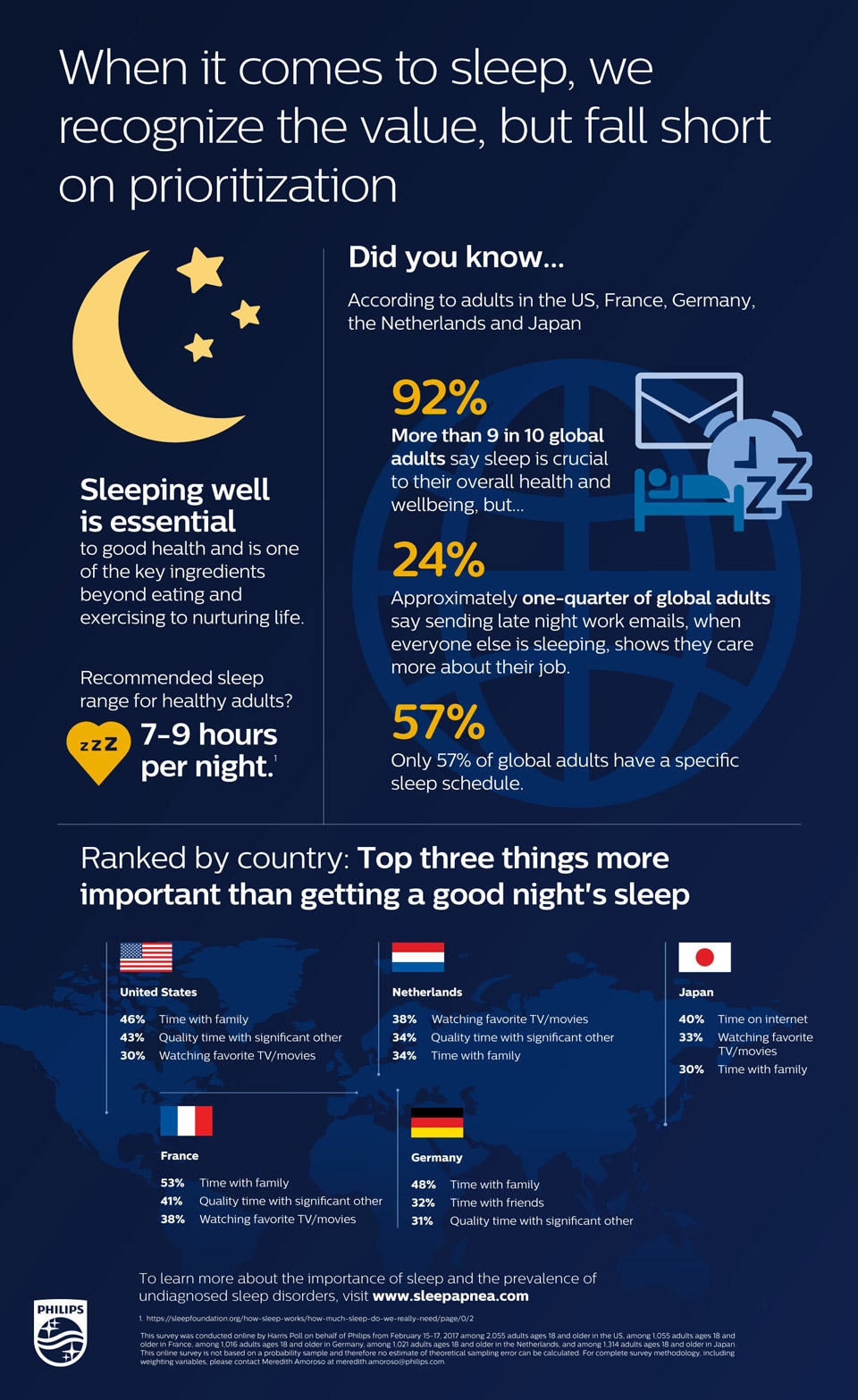
Connect with Philips
Mark your calendars for the following conferences where Philips Respironics will share information about its latest technology and discuss the most important issues facing sleep medicine and respiratory care. American Thoracic Society (ATS) Conference 2017 Join us in Washington, D.C., May 19-24, for the 113th ATS conference. Philips Respironics will host the following activities: Associated Professional Sleep Societies (APSS) SLEEP Meeting 2017 The 31st Annual Meeting of the APSS, “SLEEP”, will take place in Boston, Massachusetts, June 3-7. The SLEEP meeting provides evidence-based education to advance the science and clinical practice of sleep medicine, disseminates cutting-edge sleep and circadian research, promotes the translation of basic science into clinical practice and fosters the future of the field by providing career development opportunities at all levels. European Respiratory Society (ERS) International Congress ERS 2017 will take place in Milan, Italy, Sept 9-13. The event is catered to the needs of all respiratory care professionals, from scientists to clinicians and allied health professionals.

